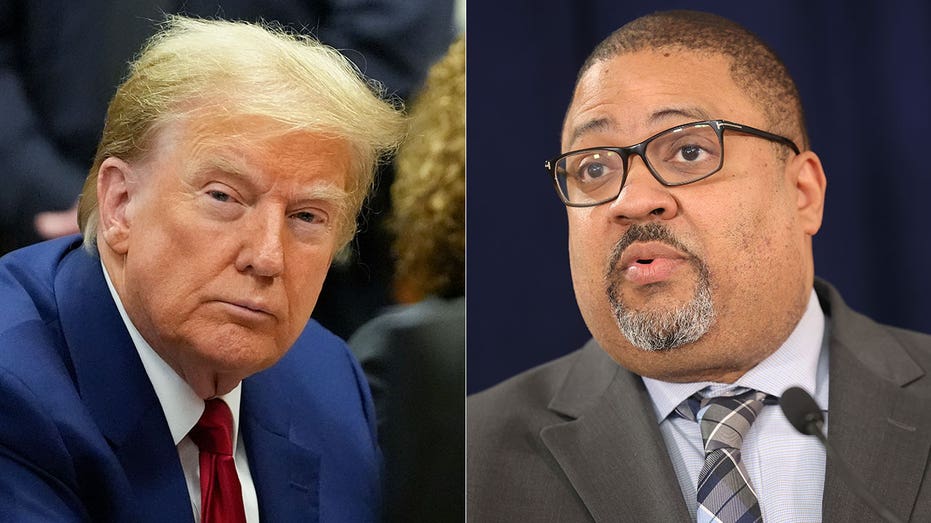NY vs Trump: The evidence prosecutors can present if former president testifies
Manhattan District Attorney Alvin Bragg may bring up E. Jean Carroll's defamation suit and Attorney General Letitia James' case should former President Trump take the stand, the judge presiding over the trial ruled Monday.

Manhattan District Attorney Alvin Bragg can bring up information from cases brought against former President Trump by New York Attorney General Letitia James and E. Jean Carroll in the cross-examination of the 2024 GOP presumptive nominee should he testify in his own defense, the judge presiding over the trial ruled Monday.
Bragg and prosecutors in the district attorney's office filed a motion last week saying they intend to use Trump’s alleged "prior misconduct and criminal acts" to discredit him after he testifies in the criminal trial.
TRUMP TRIAL: OPENING ARGUMENTS TO BEGIN AS TRUMP FLOUTS GAG ORDER AND ATTORNEY PREVIEWS DEFENSE
Trump has never been convicted of a crime.
Judge Juan Merchan, who is presiding over the criminal trial, decided Monday that Bragg’s office can bring up information from James’ lawsuit against the former president — including New York Judge Arthur Engoron’s decision that found him liable of fraud.
Trump was required to post a $454 million bond in that case, but an appeals court slashed that judgment in half to $175 million while the former president and his legal team appeal the ruling.
Engoron made the decision after a monthslong, non-jury civil fraud trial.
BRAGG SAYS HE WILL TRY TO 'DISCREDIT' TRUMP IF HE TESTIFIES IN HIS DEFENSE DURING CRIMINAL TRIAL
Merchan, on Monday, said Bragg can bring up Engoron’s ruling. Bragg is also allowed to bring up Trump’s alleged violation of the gag order imposed upon him in that case, where Trump was fined more than $10,000.
Merchan also imposed a gag order on the former president in his criminal trial. Bragg has argued that Trump has violated that order more than seven times already and wants him to pay a $1,000 fine per violation, while being warned that any future violations could be punishable with up to 30 days of incarceration.
Merchan also said Bragg is able to refer to information from Carroll's defamation case against Trump—specifically the finding that Trump "defamed" Carroll by allegedly making false statements.
A federal jury in January decided Trump must pay Carroll more than $83 million in damages after he denied allegations he raped her in the 1990s.
The jury decided Trump must pay $18.3 million in compensatory damages and $65 million in punitive damages.
A federal jury in New York City decided last year that Trump was not liable for rape, but was liable for sexual abuse and defamation. The former president was ordered to pay $5 million in that trial.
Trump has repeatedly and vehemently denied the allegation. His denial resulted in Carroll slapping Trump with a defamation lawsuit, claiming that his response caused harm to her reputation.
The jury found Carroll was injured as a result of statements Trump made while in the White House in June 2019.
Trump and his attorneys are also appealing that ruling.
Trump defense attorneys on Friday said each piece of "evidence" Bragg's team hopes to use are "just distractions."
Trump, the presumptive Republican presidential nominee, has been charged by Bragg with 34 counts of falsifying business records in the first degree. The charges are related to alleged hush money payments made to adult film actress Stormy Daniels ahead of the 2016 presidential election.
Trump has pleaded not guilty to all counts. He has blasted the trial as pure politics, a "political persecution" and maintains his innocence.
The former president, the first ever to be a defendant in a criminal trial, vowed to "tell the truth" if he takes the stand.



